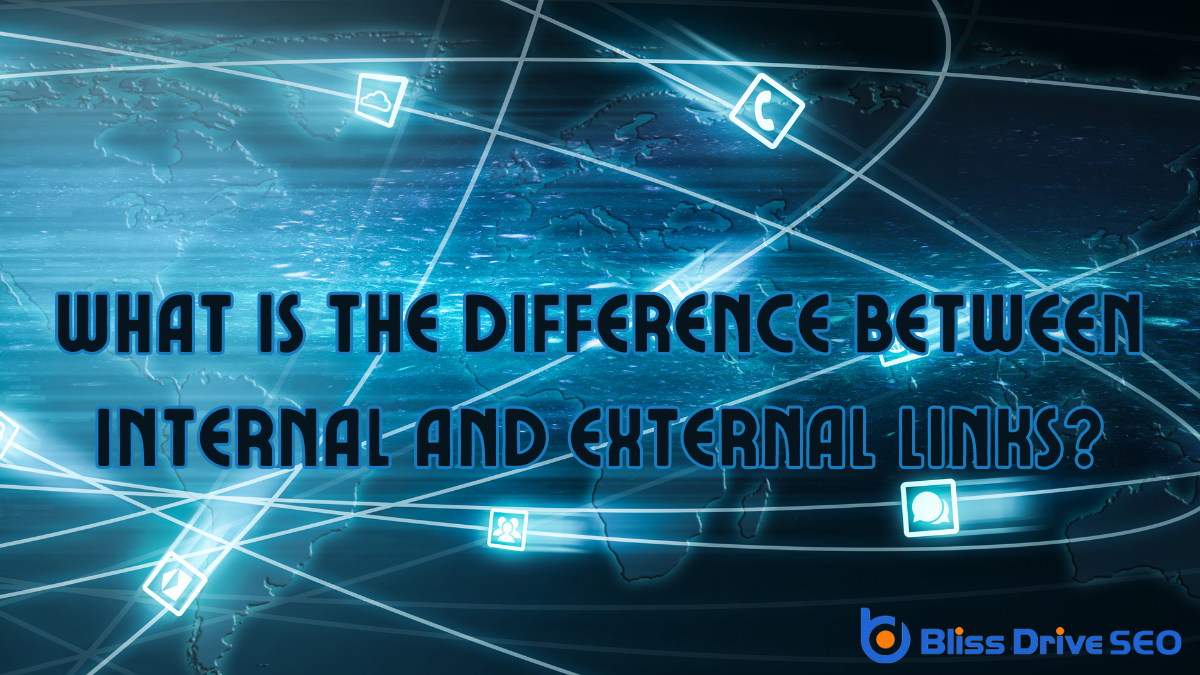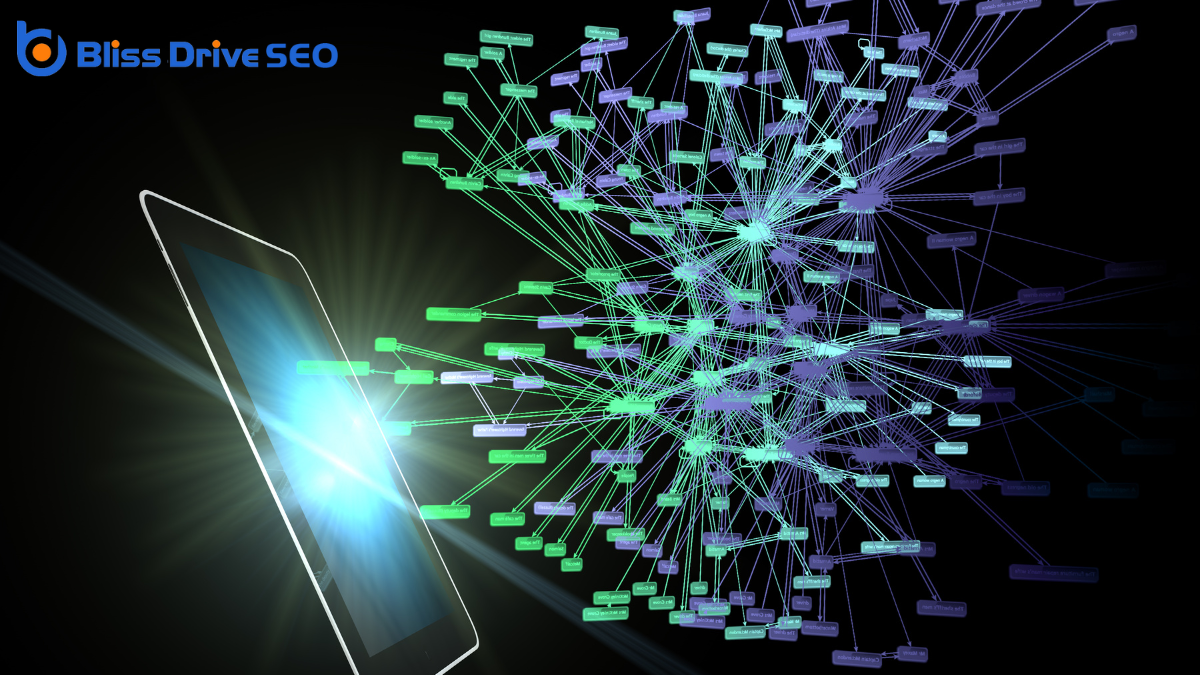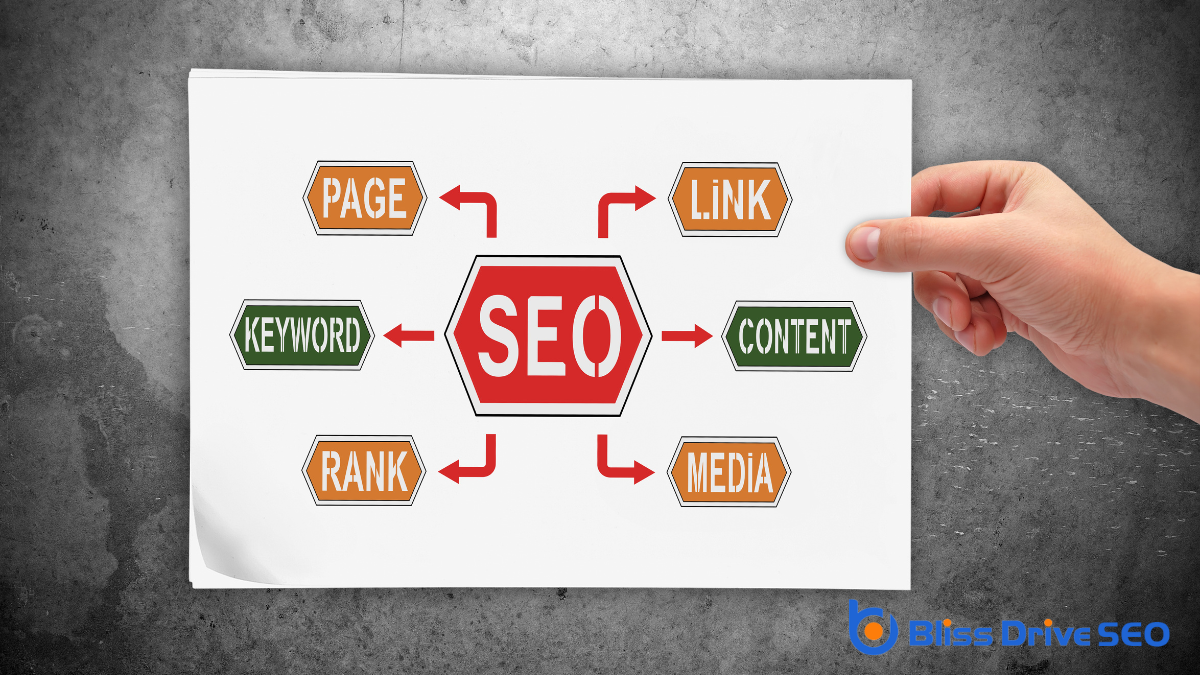Digital Marketing Services
Learn More About Us

When traversing a website, it's essential to understand the difference between internal and external links. Internal links guide you through related content within the same site, enhancing your browsing experience. They help search engines grasp the site's structure too. On the other hand, external links leadA potential customer referred by an affiliate who has shown interest in the product or service but h... you to different websites, often boosting a site's credibility by connecting to trusted sources. Curious about how these links impact SEO and enhance navigation? There's more to uncover.
Internal links are essential for enhancing your website's navigation and user experience. By connecting different pages within your site, they create a seamless journey for your visitors, guiding them to relevant information without leaving your domain.
You'll find that internal links help improve your website's structure by establishing a clear hierarchy and making it easier for search engines to crawl and index your pages. This boosts your SEO efforts, guaranteeing your content is more discoverable.
When you thoughtfully place internal links, you're also increasing the time users spend on your site, reducing bounce rates, and encouraging deeper exploration.
To get the most out of internal links, make certain they're contextually relevant and naturally integrated into your content, enhancing both readability and engagementThe interactions that users have with a brand’s content on social media..

When you explore external links, you can enhance your website's authority by connecting with credible sources.
These links also boost your SEO performance, helping your site rank higher in search results.
Additionally, external links drive referralA user who visits a merchant's website through an affiliate's link. traffic, bringing new visitors who mightn't have found your site otherwise.
Although the digital landscape is vast, external links play a pivotal role in enhancing your website's authority. When reputable sites link to your content, it signals to search engines that your site is trustworthy and valuable. This endorsement can boost your site's credibility, making it more appealing to both users and search engines.
You should focus on building relationships with authoritative websites in your nicheA specific segment of the market targeted by affiliates to promote products or services.. By doing so, you'll increase the chances of earning quality backlinksLinks from other websites pointing to your website, crucial for SEO.. Remember, it's not just about quantity; the quality of the links matters more. Aim for links from sites with high domain authority.
As you gather these valuable links, your site's authority grows, leading to increased visibility and stronger online presence.
To boost your SEO performance, leveraging external links is essential. They help search engines understand your site's relevance and authority. When you link to credible sources, you show you've done your research, enhancing your content's value.
It builds trust not only with your audience but also with search engines.
Choose links that are relevant and authoritative. Avoid linking to low-quality or spammy sites, as this could harm your SEO rather than help it.
Additionally, when authoritative sites link back to you, it's like a vote of confidence, further increasing your site's credibility.
Besides boosting your SEO performance, external links can greatly drive referral traffic to your site. When other sites link to your content, they provide a pathway for their audience to explore your offerings. This can increase your visibility and attract new visitors who are genuinely interested in your content.
It's crucial to actively pursue quality links from reputable websites to maximize this benefit.
Here's how external links can help you:
When you're designing your website, internal links play a vital role in structuring its architecture, guiding users smoothly from one page to another.
External links, on the other hand, influence your site's credibility and can affect how it's perceived by search engines.
Balancing both types of links is essential to create a robust, user-friendly site that ranks well.
Although often overlooked, the structuring of internal links plays an essential role in shaping your website's architecture. By carefully organizing your internal links, you create an intuitive navigation path that enhances user experience and supports search engine optimization.
Effective internal link structuring helps search engines understand your site's hierarchy and content relationship, guaranteeing critical pages aren't buried.
Consider these internal linkingLinks that connect different pages on the same website. strategies:
These practices bolster your site's usability and search engine rankingsThe position at which a website appears in the SERP..
External links are vital for enhancing your website's authority and credibility. By linking to reputable sources, you show users and search engines that your content is well-researched and valuable. This practice can improve your site's trustworthiness, making it more appealing to visitors.
When you connect your site to high-quality external pages, search engines like Google perceive it as a sign of your site's relevance and expertise in your field.
External links also impact your website's architecture by influencing how search engines crawl and index your content. They help search engines understand your site's context, positioning you within a broader web ecosystem.
Balancing internal and external links is important; it guarantees your site remains user-friendly while effectively communicating its authority and relevance.
To truly enhance user navigation, it's crucial to understand how internal and external links guide visitors through your website. Internal links connect different pages within your site, creating a cohesive journey for users. They keep visitors engaged by directing them to related content, making sure they find the information they need without leaving your site.
External links, meanwhile, direct users to valuable resources outside your site, offering additional insights or information.
Here's how you can enhance navigation with links:

Internal links greatly boost your site's SEO by helping search engines understand its structure, even if they're just one part of the puzzle. When you use internal links effectively, you guide search engines through your content, highlighting important pages and how they're related. This assists in distributing page authority and ranking power across your site.
Search engines like Google prioritize sites that offerThe specific product or service being promoted by affiliates. clear navigation, and internal links play an essential role in achieving that. They reduce bounce rates by encouraging visitors to explore more of your content, which signals value and relevance.
To maximize SEO benefits, guarantee your anchor texts are descriptive and relevant. This practice not only aids search engines but also enhances user experience, making it easier for visitors to find what they're looking for.
While internal links enhance your site's structure and user experience, don't overlook the power of external links in your SEO strategy. These links help search engines understand your content's relevance by connecting it to authoritative sources.
External links can boost your site's credibility and trustworthiness, which search engines value highly. Here's how they benefit your SEO:
When integrating links into your content, it's crucial to follow best practices to maximize their effectiveness.
First, verify your links are relevant to the content and provide value to the reader. Use descriptive anchor text that clearly indicates what the linked page is about, avoiding generic phrases like "click here." This helps users and search engines understand the context.
Limit the number of links you include to avoid overwhelming the reader. A few well-placed links are more effective than a cluttered page.
Make certain to regularly check that all links are functional and lead to accurate, up-to-date information. Dead links can frustrate users and hurt your site's credibility.
In understanding internal and external links, you've grasped how they contribute differently to a website's success. Internal links enhance user navigation by connecting related content, and they help search engines better understand your site's structure. External links, on the other hand, bolster your site's credibility by linking to authoritative sources. By integrating both effectively, you can create a seamless user experience while boosting your site's SEO performance. Remember, balance is key—use each type strategically for best results.
